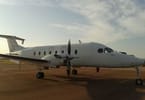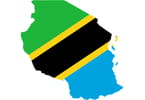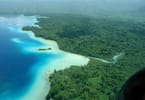The Uganda Wildlife Authority has granted a license to a private wildlife company to manage game outside the park. In the new arrangement, Amuru District Local Government, Aswa-Lolim Wildlife Association, Uganda Wildlife Authority, and the Uganda Wildlife Safaris have signed a memorandum of understanding where locals are to benefit from the hunting down of the male species of wild life in their land, popularly called sport hunting. The proceeds will be shared among the parties in agreed proportions.
This is the second time such a venture is being carried out in Uganda after a pilot project was launched in ranches neighboring Lake Mburo National Park in 2001.
Sport hunting, also known as trophy hunting, is one of income avenues for tour and travel operators where organized hunting is arranged for especially the male species of animals for their hides, skins, teeth, horns, and the meat. It was done in the 1960s when tourism was at its height under the Game Department, which issued licenses to hunters, but because of political instability and the dwindling numbers of wildlife, it had to be suspended.
According to Mr. Moses Mapesa, the executive director of the Uganda Wildlife Authority, animals currently wander into people’s gardens forcing people to kill them for safety. He said when they start looking at them as alternative sources of income, this will become an incentive for the people to conserve wildlife in a proactive manner.
“The partnership agreement is about managing animals on land that belongs to private land owners. For long they have been hunted illegally for meat and caused damage to crops and people living there. The people who have been hunting them illegally will be employed as game hunters, and they are going to be guided targeting only the male,” Mr. Mapesa said.
He said getting rid of the male specie allows for a healthy population of the animals since they require only one male to fertilize a large number of females.
“Trophy hunters pay for hunting. They can choose to eat the meat in the bush. But they can also dry the meat using salt or sunshine or package it for supermarkets,” he said, adding that there is a high potential for sport hunting in Kafu Basin, Nakasongola, Luwero, and Nakaseke.
The land owners will earn 50 percent from the trophy fees. The management partner will pay an annual $6,000 (about Shs11 million) to UWA as supervisory fees, which will be shared between UWA and local governments.
The partner will also be required to pay a hunting block fee of US$20,000 (about Shs38 million), as well as collect a community development fee of US$50 (about Shs95,000) per hunter, while observers will pay US$20 and US$50 (between Shs38,000 and Shs95,000) as observer and conservation fees, respectively.
Other fees to be handled by the managing partner include US$100 (about Shs191,000) for an annual class A wildlife-use-right certificate, as well as the UWA hunting permit, an annual professional hunter’s license of US$1,500 (about Shs2.8 million), and a trophy export license processing fee of US$300 (about Shs574,500).
According to Mr. Christian Weth, the chief executive officer, Uganda Wildlife Safaris, he expects to introduce other services such as accommodation and lodging, photographic safaris, bird watching, wing shooting, boat trips on the River Nile, and sport fishing.
WHAT TO TAKE AWAY FROM THIS ARTICLE:
- In the new arrangement, Amuru District Local Government, Aswa-Lolim Wildlife Association, Uganda Wildlife Authority, and the Uganda Wildlife Safaris have signed a memorandum of understanding where locals are to benefit from the hunting down of the male species of wild life in their land, popularly called sport hunting.
- The partner will also be required to pay a hunting block fee of US$20,000 (about Shs38 million), as well as collect a community development fee of US$50 (about Shs95,000) per hunter, while observers will pay US$20 and US$50 (between Shs38,000 and Shs95,000) as observer and conservation fees, respectively.
- Other fees to be handled by the managing partner include US$100 (about Shs191,000) for an annual class A wildlife-use-right certificate, as well as the UWA hunting permit, an annual professional hunter’s license of US$1,500 (about Shs2.






















